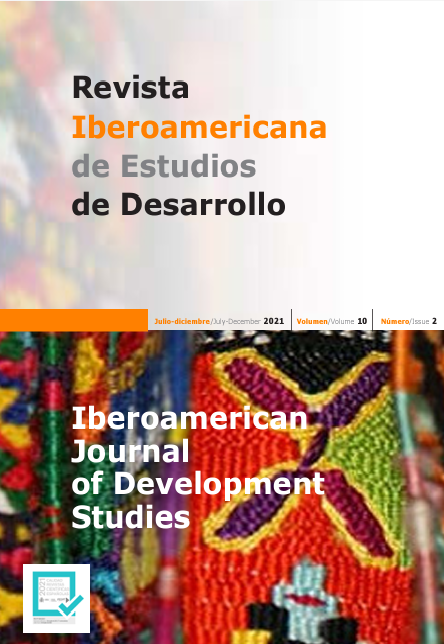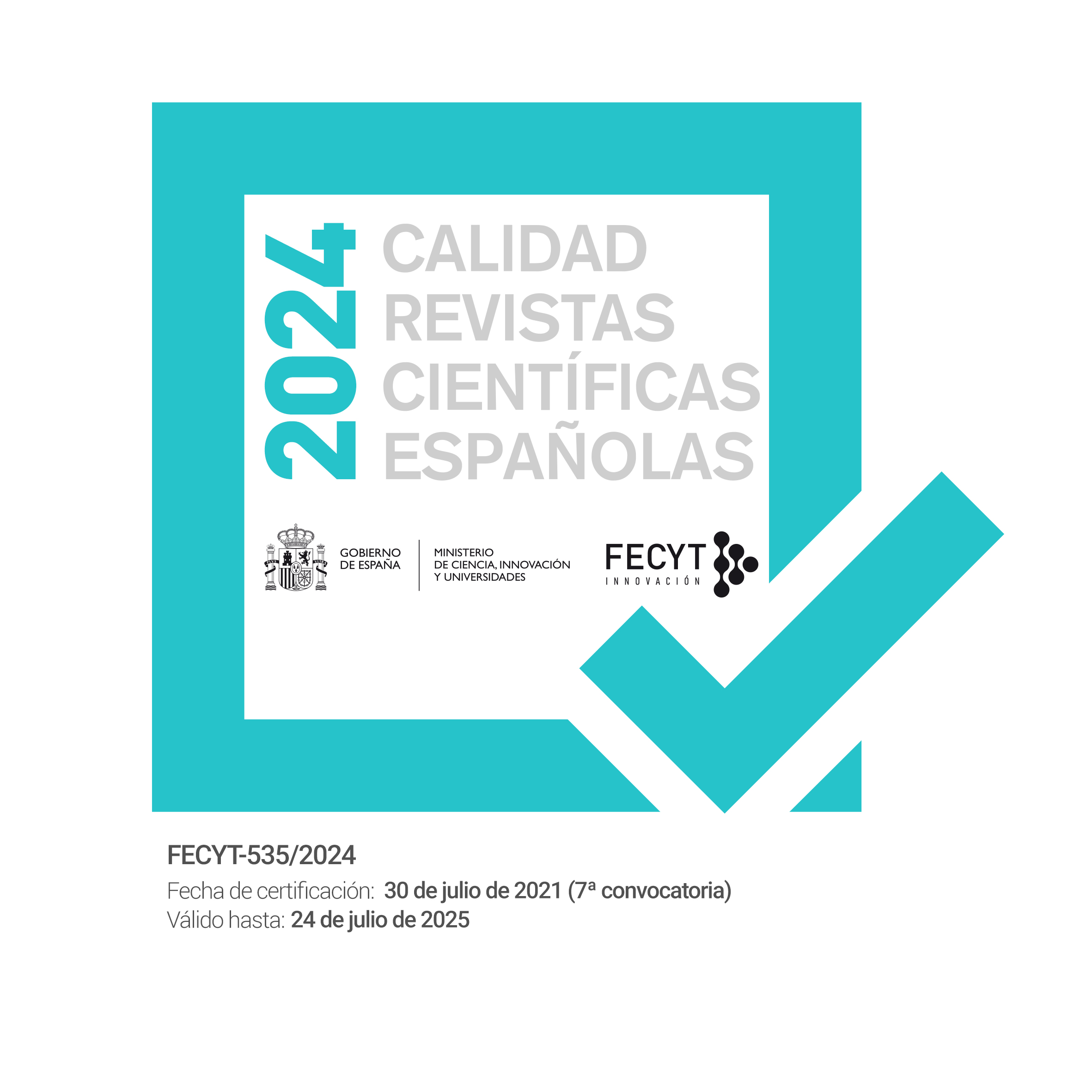Cooperation and conflict in the 2030 Agenda: an unbalanced relationship?
DOI:
https://doi.org/10.26754/ojs_ried/ijds.581Keywords:
2030 Agenda, sustainable development, SDGs, international cooperation, conflictAbstract
Among the virtues of the 2030 Agenda is that of trying to provide a more comprehensive and urgent response to the challenges raised by an increasingly complex and changing world. This purpose has led to putting the cooperative dimension at the centre of the agenda understanding that, in a globalized and interdependent world, it will be impossible to address the challenges posed if it is not by articulating different forms of concerted responses. However, although this cooperative dimension is unavoidable to achieve the goals set, achieving this agenda also seems to require progress in a more conflictive dimension, that has occupied a residual space to date. This article addresses this issue, analysing some key areas in which it will be necessary to assume conflicting logics and the political and institutional implications that should derive from it in the future.
Downloads
References
ALONSO JA (2018). International tax cooperation and sovereign debt crisis resolution: reforming global governance to ensure no one is left behind. CDP Background Paper 41.
ALONSO JA, AGUIRRE P, SANTANDER G (2019). El nuevo rostro de la cooperación internacional para el desarrollo. Actores y modalidades emergentes. La Catarata-IUDC, Madrid.
ALONSO JA, HUITRÓN A, SANTANDER G (2017). Iberoamérica y los Objetivos de Desarrollo Sostenible. Secretaría General Iberoamericana, Madrid.
BANCO MUNDIAL (2015). From Billions to Trillions: Transforming Development Finance. Post-2015 Financing for Development: Multilateral Development Finance. World Bank DC2015-0002.
BECK U (2002). Poder y contrapoder en la era global. Paidós, Barcelona.
BECK U (2005). La mirada cosmopolita o la guerra es la paz. Paidós, Barcelona.
CARABALLO J (2017). Reducing the race to the bottom: A primer on a global floor for minimum wages. Investigación Económica 76(300):33-51.
CEPAL (2018). La ineficacia de la desigualdad. Cepal, Naciones Unidas.
CHATURVEDI S, FUES T, SIDIROPOULOS E (2012). Development Cooperation and emerging powers. New Partners or Old Patterns? Zed Books, Londres.
CLARK R (2017). Quotas Operandi: Examining the Distribution of Voting Power at the IMF and World Bank. The Sociological Quarterly 58(4): 595-621.
COLLINS R (1975). Toward an Explanatory Science. Academic Press, Nueva York.
COSER L (1961). Las funciones del conflicto social. Fondo de Cultura Económica, México.
DAHRENDORF R (1971). Sociología y Libertad. Hacia un análisis sociológico de la actualidad. Tecnos, Madrid.
DIWAKAR V (2020). From pandemics to poverty Hotspots of vulnerability in times of crisis. ODI Briefing Papers 04/2020.
DONOGHUE D, KHAN A (2019). Achieving the SDGs and «leaving no one behind». Maximising synergies and mitigating trade-offs. ODI Working Paper 560.
ESCOBAR A (2012). Más allá del desarrollo: posdesarrollo y transiciones hacia el pluriverso. Revista de Antropología Social 21:23-62.
ESTEVA G, BABONES S, BABCICKY P (2013). The Future of Development: A Radical Manifesto. Bristol University Press, Brístol.
EURODAD (2018). Historia Repetida. Cómo fracasan las Alianzas Público-Privadas. Informe Eurodad, Bruselas.
FOWLER A, BIEKART K (2017). Multi‐Stakeholder Initiatives for Sustainable Development Goals: The Importance of Interlocutors. Public Administration and Development 37(2):81-93.
FRANZÉ J (coord.). Democracia: consenso o conflicto. Agonismo y teoría deliberativa en la política contemporánea. La Catarata, Madrid.
GALANAKIS C. The Food Systems in the Era of the Coronavirus (COVID-19) Pandemic Crisis. Foods 9(4):523.
GASPAR V, AMAGLOBELI D, GARCIA-ESCRIBANO M, PRADY D, SOTO M (2019). Fiscal Policy and Development: Human, Social, and Physical Investments for the SDGs. International Monetary Fund Staff Discusion Notes 19/03.
GREENHILL R, ALI A (2013). Paying for Progress: How Will Emerging Post-2015 Goals Be Financed in the Emerging Aid Landscape. ODI Working Paper 366.
GRIFFITH-JONES S, MARODON R, OCAMPO, JA (2020). Mobilizing Development Banks to Fight COVID-19, Project Syndicate. https://www.project-syndicate.org/commentary/mobilizing-development-banks-to-fight-covid19-by-stephany-griffith-jones-et-al-2020-04?barrier=accesspaylog, acceso 1 de junio de 2020.
GRIFFITHS J, PANIZZA U, TADDEI F (2020). Reducing low-income country debt risks. The role of local currency-denominated loans from international institutions. ODI Briefing Note (mayo).
GUDYNAS E (2017). Posdesarrollo como herramienta para el análisis crítico del desarrollo. Estudios críticos sobre el desarrollo 7(12):193-210.
GUPTA S, LIU J (2020). The COVID-19 Crisis and Fiscal Reform in Low-Income Countries. CDG Note (junio).
HAUSMANN R (2020). What Should We Be Preparing For. Project Syndicate, 27 de mayo.
HAZLEWOOD P (2015). Global Multi-stakeholder Partnerships: Scaling up public-private collective impact for the SDGs. Independent Research Forum Background Paper 4.
HELD D (2005). Un pacto global. Taurus, Madrid.
HELD D (2012). Cosmopolitismos. Ideales y realidades. Alianza, Madrid.
HEMMELGARN TH, NICÒDEME G, TASNADI B, VERMOTE P (2016). Financial Transaction Taxes in the European Union. National Tax Journal 69(1):217-240.
IKENBERRY GJ (2019). The End of the Liberal International Order. International Affairs 94(1):7-23.
INNERARITY D (2020). Una teoría de la democracia compleja. Gobernar en el siglo XXI. Galaxia Gutenberg, Barcelona.
JIMÉNEZ JP, SOLIMANO A (2012). Élites económicas, desigualdad y tributación. Cepal Serie Macroeconomía del Desarrollo 126.
KACOWICZ AM (2018). Regional governance and global governance: Links and explanations. Global Governance 24(1):61-79.
KAUL I (2019). Global Public Goods and Governance for Addressing Sustainability. En: Nissanke M, Ocampo JA (eds.). The Palgrave Handbook of Development Economics. Palgrave Macmillan, Londres, pp. 833-865.
LAKOFF G (2007). No pienses en un elefante. Lenguaje y debate político. Editorial Complutense, Madrid.
LE BLANC D (2015). Towards integration at last? The sustainable development goals as a network of targets. DESA Working Paper 141.
LUKES S (2005). Power: A Radical View. Palgrave Macmillan, Londres.
MAWDSLEY E (2012). From Recipients to Donors. Emerging Powers and the Changing Development Landscape. ZED Books, Londres.
MAWDSLEY E (2018). From billions to trillions’: Financing the SDGs in a world «beyond aid». Dialogues in Human Geography 8(2):191-195.
MENASHE M (2020). The Race to the Bottom Revisited: International Labour Law, Global Trade and Evolutionary Game Theory. Oxford Journal of Legal Studies 40(1):53-81.
MILLÁN N, SANTANDER G (2020). El virus cosmopolita: lecciones de la COVID-19 para la reconfiguración del Estado-Nación y la gobernanza global. Geopolítica(s). Revista de estudios sobre espacio y poder 11 (n.º especial):251-263.
NACIONES UNIDAS (2015). Documento Final de la Tercera Conferencia Internacional sobre Financiación para el Desarrollo: Agenda de Acción de Adís Abeba. A/69/L.82 (27 de julio).
NACIONES UNIDAS (2019). Informe de los Objetivos de desarrollo Sostenible 2019. Naciones Unidas.
OCDE (2016). TOSSD Compendium. Organización para la Cooperación y el Desarrollo Económicos, París.
OCDE (2018). Multilateral Development Finance. Towards a New Pact on Multilateralism to Achieve the 2030 Agenda Together. Organización para la Cooperación y el Desarrollo Económicos, París.
OCDE (2020). Global Outlook on Financing for Sustainable Development 2021. A New Way to Invest for People and Planet. Organización para la Cooperación y el Desarrollo Económicos, París.
OLSON M (1965). La lógica de la acción colectiva. Bienes públicos y la teoría de grupos. Harvard University Press, Cambridge.
ONUF N (1989). World of Our Making: Rules and Rule in Social Theory and International Relations. University of South Carolina Press, Carolina del Sur.
ROMERO M (2015). What Lies Beneath? A Critical Assessment of PPPs and Their Impact on Sustainable Development. Eurodad, Bruselas.
ROSS M (1995). La cultura del conflicto. Paidós, Barcelona.
SANAHUJA JA (2013). Narrativas del multilateralismo: «efecto Rashomon» y cambio de Poder. Revista Cidob d’Afers Internacionals 101:27-54.
SANAHUJA JA (2016). Entre Westfalia, Southfalia y Cosmópolis: la Gobernanza Global del Desarrollo Sostenible en el Horizonte 2030. En: García C (dir.). La tensión cosmopolita. Avances y límites en la institucionalización del cosmopolitismo. Tecnos, Madrid, pp. 243-285.
SANAHUJA JA (2019). El ascenso global de la ultraderecha y el nacionalismo: crisis de la globalización, el regionalismo y el orden liberal. En: Altmann J (coord.). América Latina frente a la reconfiguración global. Flacso, San José, pp. 31-64.
SANAHUJA JA (2020). COVID-19: riesgo, pandemia y crisis de gobernanza global. En: Mesa M (coord.). Riesgos globales y multilateralismo: el impacto de la COVID-19. Anuario Ceipaz 2019-2020. Ceipaz, Madrid, pp. 27-54.
SANDLER T (1992). Collective Action: Theory and Applications. Michigan Press, Míchigan.
SCHMIDT-TRAUB G (2015). Investment Needs to Achieve the Sustainable Development Goals. Sustainable Development Solutions Network, París-Nueva York.
SERNA M, BOTTINELLI E (2018). El poder fáctico de las élites empresariales en la política latinoamericana: un estudio comparado de ocho países. Clacso, Buenos Aires.
SIMMEL M (2010). El conflicto. Sociología del antagonismo. Sequitur, Madrid.
STRAND JR, RETZL KJ (2016). Did Recent Voice Reforms Improve Good Governance within the World Bank? Development and Change 47(3):415-445.
SUMNER A, HOY CH, ORTIZ-JUAREZ E (2020). Estimates of the impact of COVID-19 on global poverty. WIDER Working Paper 2020/43.
TAX JUSTICE NETWORK (2020). The state of the tax justice 2020: tax justice in the time of Covid-19. Tax Justice Network, Reino Unido.
TUSSIE D, RIGGIROZZI P (2015). A global conversation: rethinking IPE in post-hegemonic scenarios. Contexto internacional 37(3):1041-1068.
UCLG (2015). The Sustainable Development Goals. What Local Governments Need to Know. United Cities and Local Governments, Barcelona.
UNCTAD (2014). World Investment Report 2014: Investing in the SDGs: An Action Plan. UNCTAD, Ginebra.
WANG H (2019). The New Development Bank and the Asian Infrastructure Investment Bank: China’s Ambiguous Approach to Global Financial Governance. Development and Change 50(1):221-244.
WENDT A (1999). Social Theory of International Politics. Cambridge University Press, Cambridge.
YAMEY G, SCHÄFERHOFF M, HATCHETT R, PATE M, ZHAO F, MCDADE KK (2020). Ensuring global access to COVID-19 vaccines. The Lancet 395:1405-1406.
ZÜRN M, DE WILDE P (2016). Debating globalization: cosmopolitanism and communitarianism as political ideologies. Journal of Political Ideologies 21(3):280-301.
Downloads
Published
How to Cite
Issue
Section
License
Copyright (c) 2021 Guillermo Santander-Campos

This work is licensed under a Creative Commons Attribution-NonCommercial-NoDerivatives 4.0 International License.








